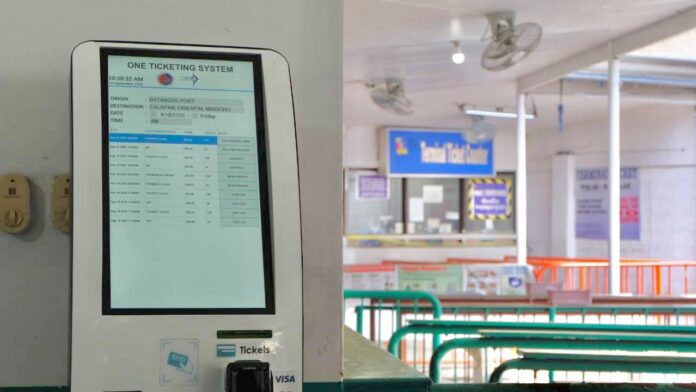
-
The Philippine Ports Authority signed the contract for the P500-million electronic terminal management system
-
PPA on February 9, 2022 inked the deal with the joint venture of NextIX, Inc and Carus Ferry Ab Ltd
-
The contract covers supply, delivery, installation, and commissioning of ETMS, including cloud-based unified electronic ticketing capabilities
The Philippine Ports Authority (PPA) on February 9 signed the contract for the P499.898-million electronic terminal management system (ETMS) project with the joint venture of NextIX, Inc. and Carus Ferry Ab Ltd.
The PPA also issued a notice to proceed dated February 9, instructing the JV to immediately start working according to the implementation schedule.
The JV was awarded the project in December 2021 after it won the rebidding in October 2021.
READ: Philippine-Finnish JV bags P500M e-terminal management contract
The contract covers supply, delivery, installation, and commissioning of ETMS, including cloud-based unified electronic ticketing capabilities. The project is a package solution of software, hardware, equipment and peripherals for simultaneous implementation. It includes system server for the PPA head office and 25 kiosks to be distributed, installed, and configured across PPA ports.
NextIX is a Philippine innovation company specializing in universally available information and communication technology solutions while Carusis a Finnish-based global supplier of information systems to the travel and transport industry.
PPA general manager Jay Daniel Santiago earlier said the ETMS will fully digitize terminal management nationwide.
The ETMS aims to provide an online platform accessible anytime to passengers, vessel operators, port service providers and the ports authority. It “will provide a digitized and systematized process of recording and simultaneous submission of passenger manifest, and vessel voyage information which can effectively be scaled and extended to support future phases of the terminal management process at the PPA port terminals,” PPA said.
The system aims to strengthen security and safety standards by mitigating vessel overloading and controlling the flow of regulated goods and cargoes using PPA port facilities, and providing standard stakeholders’ registries, credentialing, licensing, and accreditation monitoring.
It seeks to streamline the payment and collection of port fees (terminal and cargo/roll-on/roll-off) and harmonize this with PPA’s existing electronic payment system.
PPA in August 2019 announced a plan to implement an online ticketing system with a single window for processing all transactions needed to be done by government, shipping companies, port terminal operators, passenger terminal building operators and the general public.
The system would comply with the International Maritime Organization’s mandatory requirement for electronic exchange of information on cargo, crew, and passengers as part of the revised Convention on Facilitation of International Maritime Traffic.
In November 2019, PPA issued Administrative Order (AO) No. 12-2019, which provides rules for implementing the Central Ticketing System (CTS), an online application procedure that would support an integrated vessel booking and payment system for roll-on/roll-off ports.
In September 2020, PPA tested its Unified Electronic Ticketing System, also known as CTS, at the port of Batangas and port of Calapan in Mindoro to prepare for the system’s planned full implementation in 2021. In November 2020, a public consultation was held with stakeholders ahead of AO 12-2019’s implementing rules and regulations.
READ: Shipping lines seek review of PPA’s “redundant” central ticketing system
The Philippine Inter-island Shipping Association earlier asked the Anti-Red Tape Authority to stop PPA’s bidding of the ETMS and to review AO 12-2019, claiming implementing a CTS would be “redundant,” “impractical,” and an additional cost to the riding public. – Roumina Pablo




